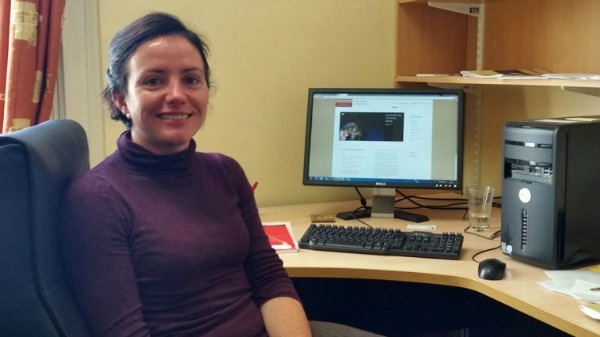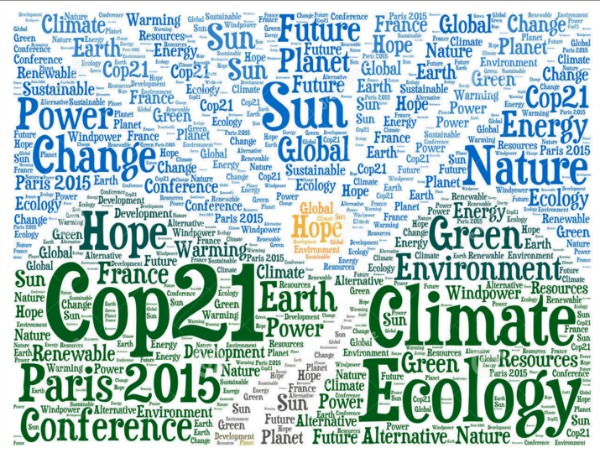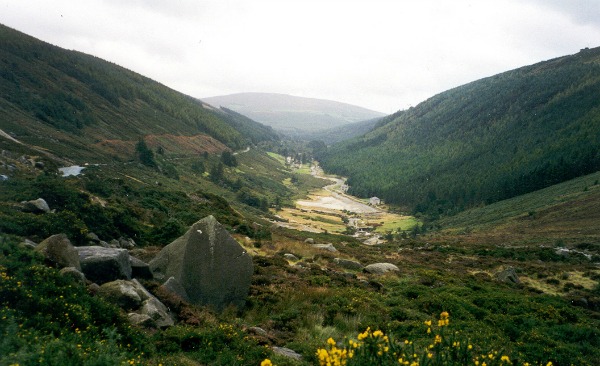
Catherine Devitt is the newly appointed Environmental Justice Officer in the Jesuit Centre for Faith and Justice. Here she lays out the aims of the Sustainable Development Goals and their relationship to the intergovernmental Conference on Climate Change—known as COP21— currently ongoing in Paris.
Transforming our world: The Sustainable Development Goals
On September 25th 2015, a global agreement: ‘Transforming our World: the 2030 Agenda for Sustainable Development’, was reached at a United Nations assembly in New York. The assembly opened with a passionate address from Pope Francis, which focused heavily on the need for environmental protection. ‘Transforming our World’, comprises 17 goals and 169 targets, agreed by 193 countries, and builds on the earlier Millennium Development Goals, which expired in 2015.
Despite embracing a range of areas, the overall aim is to end poverty, protect the planet, and ensure prosperity for all. The goals also highlight the need for peace and inclusiveness, partnership and solidarity, and are globally applicable. These goals are very significant— they provide us with an important plan of action for the next fifteen years, until 2030. The plan also includes measures for evaluating the success of the goals in reaching their targets, and its delivery is quite timely—complementing much of what Pope Francis’ calls for in his recent encyclical Laudato Si’: on Care for Our Common Home. It also signals a hopeful message of global solidarity on poverty reduction, ending injustice, and ensuring environmental protection.
Taking urgent action to combat climate change: COP21
One of the 17 goals includes taking urgent action to combat climate change and its impacts, with established targets aiming to improve our ability to respond to climate-related hazards; to incorporate action and planning on climate change into national policies, strategies and development; and to enhance education, awareness-raising and overall capacity on climate change mitigation and adaptation.
The United Nations Framework Convention on Climate Change (UNFCCC) is the primary international intergovernmental forum for negotiating the global response to climate change, and currently in Paris, over 150 Heads Of States from around the world are meeting to negotiate an international agreement capable of limiting carbon emissions, to prevent a rise in global temperatures to no more than 2oC above pre-industrial levels. The 21st Conference of the Parties (COP21) builds on findings from the 2013 Fifth Assessment of the Intergovernmental Panel on Climate Change (IPCC), which clearly stated that warming of the climate system, attributable to human activity, is undeniable – in recent decades, many of the observed changes are unparalleled over decades to millennia.

Image COP21 in Paris, by Dreamstime
Radical change of hearts and minds necessary to protect the world
Much hope for a successful outcome from the Summit is founded upon the level of preparation and commitment invested by governments prior (in terms of national commitments on emission reductions, and promises on climate finance); nevertheless mixed expectations remain. For example, in a recent article in Working Notes, Professor John Sweeney here in Ireland argued that the outcome will be: “an agreement that will be marketed as a political triumph, but fall short of the radical change of hearts and minds necessary to protect the world from 2oC warming over the next four decade”.
While on paper, governments have already committed to reducing emissions, key challenges lie in achieving agreements over the delivery of financial aid to those hit hardest by climate change, and whether or not a legally binding, universal agreement can be reached. In comparison to previous climate summits, a more inclusive international deal in Paris is likely, although not all aspects of the deal may be legally binding. Additionally, the sum of national pledges submitted may fail to lower climate change levels to less than the 3oC – leading to the expectation that COP21 will instead pave the way for future, more ambitious summits to build upon.
Laudato Si’: On Care for our Common Home
In the recent encyclical: Laudato Si’: On Care for our Common Home, Pope Francis emphasises the uselessness of a piecemeal approach to tackling climate change. Indeed, the encyclical offers much guidance towards achieving a fair and sustainable vision:
“The myopia of power politics delays the inclusion of a far-sighted environmental agenda within the overall agenda of governments. Thus we forget that ‘time is greater than space’, that we are always more effective when we generate processes rather than holding on to positions of power. True statecraft is manifest when, in difficult times, we uphold high principles and think of the long-term common good.”
While initial reactions to the early days of the Summit signal a hopeful response, this needs to translate into concrete reality. This week in Ireland, new legislation will be passed to help combat and adapt to climate change – the Climate Action and Low Carbon Development Bill places climate-policy on a statutory footing for the first time.
However, statements from Taoiseach Enda Kenny on the opening day of COP21, underscores the, at times, contradictory position of the Irish government on climate action. Ireland’s emissions profile per person is among the highest of the developed countries, yet much to the disquiet of environmental NGOs, such as Friends of the Earth Ireland, Ireland’s political stance at the Summit is pleading for special treatment due the predominance of agriculture to the Irish economy, and Ireland’s poor economic trajectory in recent years.
An inability to hold a perspective that is beyond individual national interests renders it difficult to achieve the much needed global vision capable of responding to the greatest crisis of our time. For Paris to be most effective, a joint-vision and joint-process is required, which has at its core, a human and earth-care centred approach.
Again, we are reminded of Laudato Si’: “We have to realise that a true ecological approach always becomes a social approach; it must integrate questions of justice in debates on the environment, so as to hear both the cry of the earth and the cry of the poor”.

Glendalough, the valley of the two lakes. Photo credit: commons.wikipedia.org
Additional Information
For additional information on the sustainable development goals, interactive and accessible information is available here: For more information on climate change and COP21, a simple overview can be accessed and the UNFCCC has put together an interactive guide explaining the COP process, climate finance, and key terms related to climate change such as capacity building, mitigation and adaptation. Also relevant to discussions is a position document from CIDSE—an international alliance from 17 Catholic development agencies—which was inspired by Laudato Si’, and sets out a vision for COP21 and beyond.
Author: Catherine Devitt, 4th December 2015
About the Jesuit Centre for Faith and Justice (JCFJ)
The JCFJ works to promote social justice by fostering an understanding of public issues through social analysis, reflection and advocacy. The Centre is an agency of the Irish Jesuit Province and is a registered charity: CHY 6965. The social justice issues of concern to the Centre include penal policy, housing and homelessness, environmental policy and ecology, and the need for a more just and sustainable model of economic development. The Centre conducts independent analysis with the aim of influencing changes in policy and practice, as well as raising public awareness of social issues.

